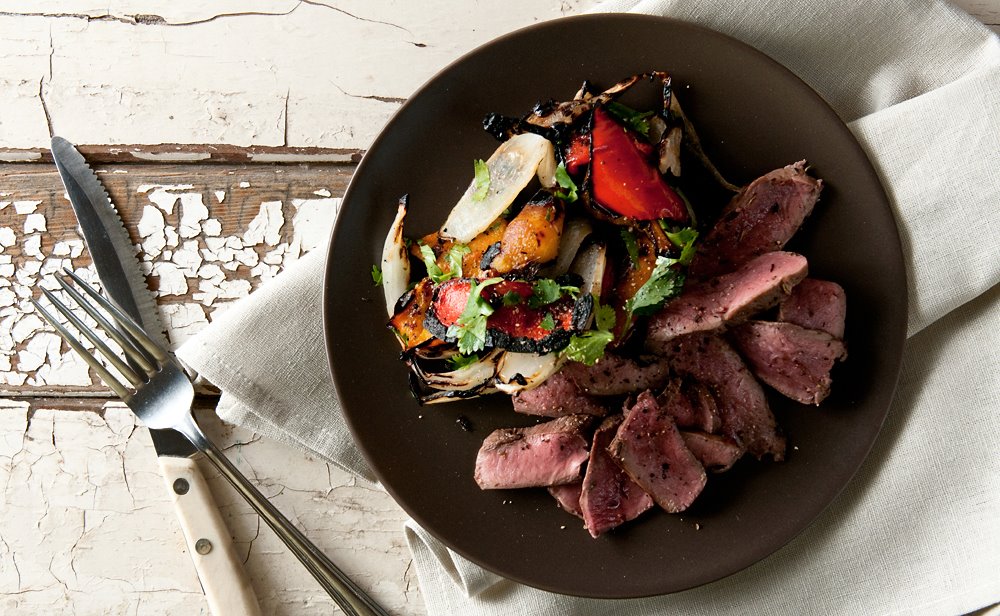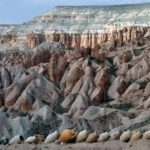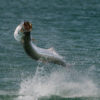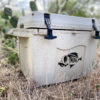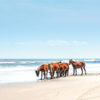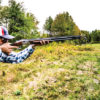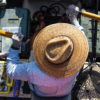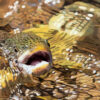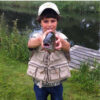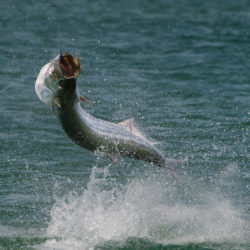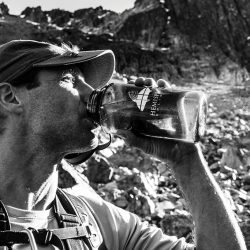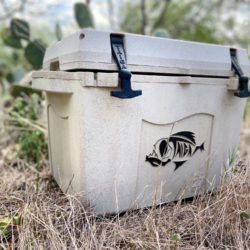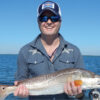Cover photo by Holly A. Heyser
Hank Shaw is a chef, hunter, angler, forager and wild-foods expert. The author explains his approach—which centers on “honest” food and respect for wildlife—in his highly acclaimed books and on his award-winning website, Hunter Angler Gardener Cook.
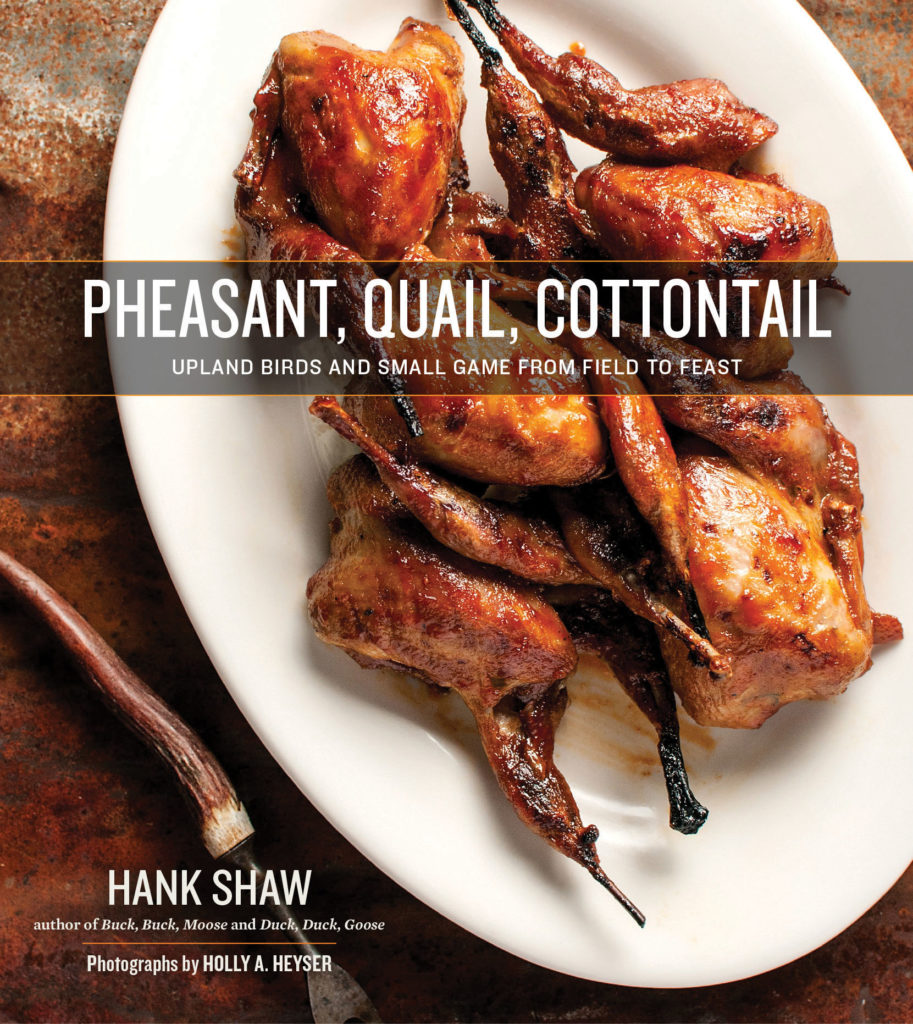
“I write. I fish. I dig earth, forage, raise plants, live for food and hunt anything that tastes good,” he writes on his blog. “I’ll drink fancy Scotch, craft beer, Pabst Blue Ribbon, a fine Barolo or hell, even kombucha, depending on my mood or who’s offering. I spend my days thinking about new ways to cook and eat anything that walks, flies, swims, crawls, skitters, jumps—or grows. I am the omnivore who has solved his own dilemma.”
When I interviewed Shaw, I explained a dilemma of my own: a tick-borne allergy to mammalian meat. We both grew up in New Jersey, where Philly cheesesteaks (“subs” in North Jersey, “hoagies” in South Jersey) are delicious and plentiful throughout the region. I assured him beef cheesesteaks are what I miss most.
Why don’t you substitute beef with goose breast. First, you pound the hell out of it, then you…a goose cheesesteak is a great option. I should add that one back on my website and will gladly share the recipe with you.
Hank Shaw
We laughed. I realize goose typically is not as tender as duck and other waterfowl. But I am also certain food—and how one sources, prepares and cooks it—is no laughing matter to Shaw.
Hunter Angler Gardener Cook won the James Beard Award for Best Blog in 2013; the Beards are considered the Oscars of the food world. Shaw also won the International Association of Culinary Professionals (IACP) award for Best Blog in 2010 and 2011, and his work was featured in the 2012 and 2013 editions of “Best American Food Writing.”
Shaw has appeared on television shows ranging from Mike Rowe’s “Somebody’s Gotta Do It” on CNN, to Andrew Zimmern’s “Bizarre Foods” on Travel Channel and Steven Rinella’s “Meateater” on Sportsman Channel. He has been featured in the New York Times, Chicago Tribune, the Washington Post, Field & Stream, CNN, NPR and similar outlets.
He is the author of four wild-game cookbooks. “Hunt, Gather, Cook: Finding the Forgotten Feast,” was released in 2011 by Rodale Books. The work was intended to help open the world of foraging, hunting and fishing to those interested in food, but who may have never fully embraced or participated in these pursuits.
Shaw’s second book, “Duck, Duck, Goose: Recipes and Techniques for Ducks and Geese, both Wild and Domesticated,” was released by Ten Speed Press in October 2013. The work includes a wealth of information about cooking wild and store-bought ducks and geese.
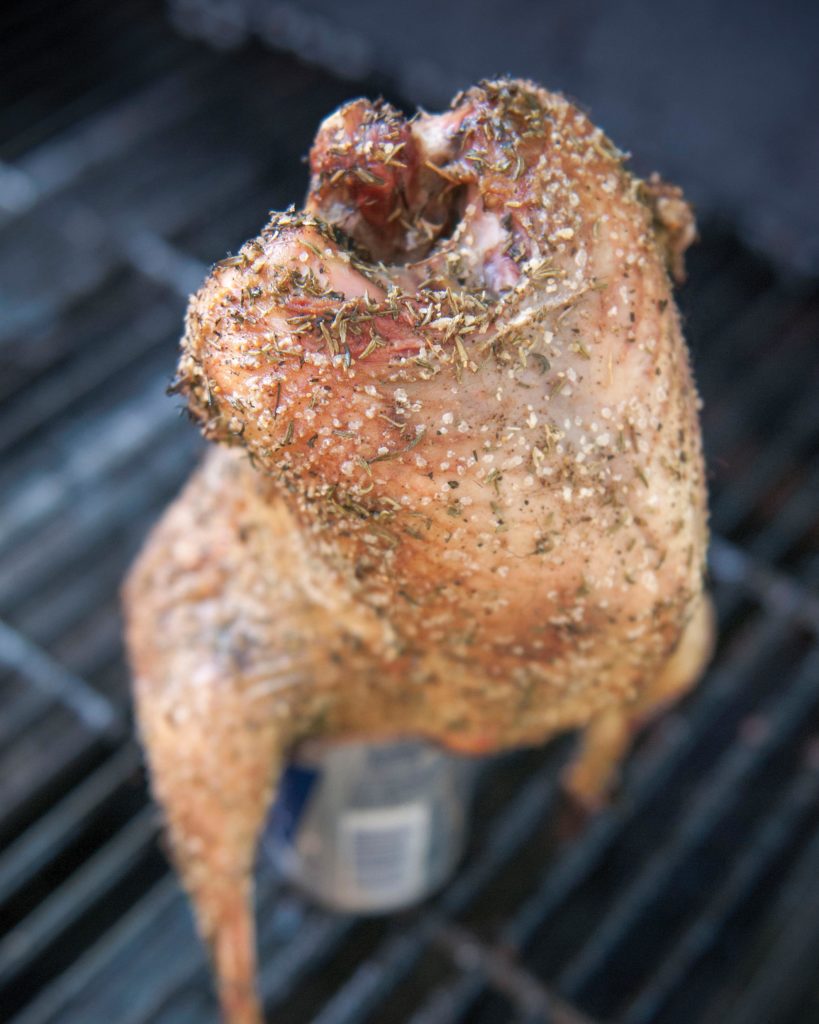
“Beer-can chicken is one of the best ways I know to roast a chicken… To make this technique work for pheasant, you need to make a few modifications. First off, while you can sometimes jam a regular beer can into a pheasant, the birds are generally too small. But a Red Bull can or a narrow jelly jar will fit. Fill it halfway with beer.”
Photo by Holly A. Heyser
“Buck, Buck, Moose: Recipes and Techniques for Cooking Deer, Elk, Moose, Antelope and Other Antlered Things,” was published in September 2016. It is the first comprehensive and lushly photographed guide to preparing and cooking all forms of venison.
His fourth cookbook, “Pheasant, Quail, Cottontail: Upland Birds and Small Game from Field to Feast,” was released in March 2018 and won a cookbook award in 2019 from the IACP. It covers all the upland birds and small mammals normally hunted in North America.
As a life member of Quail Forever, I believe giving back to the environment that sustains the birds we hunt. “That’s why I am donating a portion of the proceeds from every copy of ‘Pheasant, Quail, Cottontail’ to the non-profit conservation efforts of Pheasants Forever and Quail Forever, which will use the funds to restore, improve, and expand the habitat for all upland birds.
Hank Shaw
Shaw believes the upland world is very diverse and exciting, and the flavors of small game are astounding. Even though the author admittedly loves ducks, geese and venison, they are considered red meat from a culinary standpoint with few distinguishing characteristics. Skin and fat give upland birds tremendous flavor, which is why hunters owe it to themselves to pluck their birds.
“There’s a reason why the great French chefs hold game birds in such high regard—higher even than the big-game animals like deer and boar—and why they positively swoon over the woodcock, one of the few birds that rivals the grouse for my attentions,” Shaw writes in the book’s introduction.
He also thinks this latest book is the best of the bunch and his biggest book to date. He even changed the paper to make it lighter and brighter to better capture the outdoor experience.
The book features Shaw’s outdoor images and food photography by his longtime collaborator, Holly A. Heyser. The two are working on a book of essays on the pursuit of hunting. Shaw believes this new undertaking is important; as the population becomes more urban, the idea of hunting becomes more foreign to those who do not hunt. Hunting and conservation are inherently intertwined, even though this concept is a disconnect for many. The book is intended to bridge the gap for non-hunters.
“I don’t call hunting a sport because sports typically don’t result in deaths,” explained Shaw. “If we do our job right, we will convey the ‘why’ behind the heavy pursuit that is hunting in real terms so non-hunters understand. This is an opaque world and creating an understanding could really help.”
Shaw admits he is not a very spiritual person, but his approach comes down to respecting animals. For example, taking the breast and leaving the rest of a bird for the coyotes is not something he condones or practices. Plus, there are far more delicious parts of upland birds than breasts.
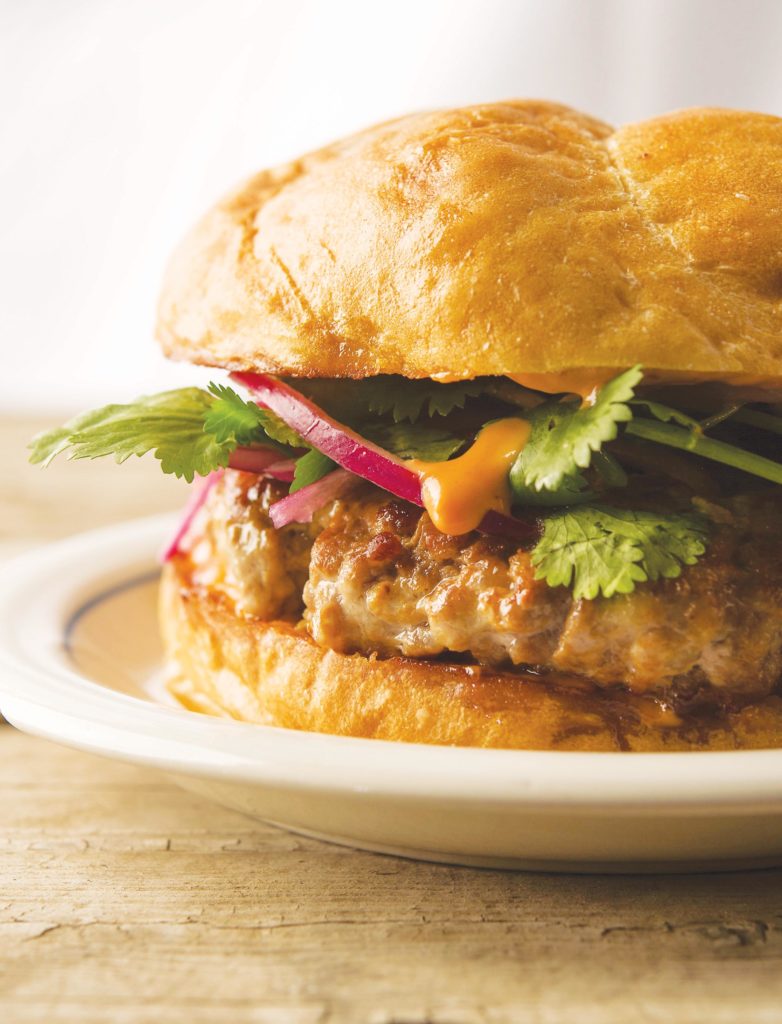
“Pheasant burgers? You betchya. when you have a great trip and bring home lots of pheasants, or if you have a few birds that have been a bit mauled by the dog—or you’ve hit them a little too squarely—this is a great recipe for less-than-perfect roosters. it’s even better with wild turkeys.”
Photo by Holly A. Heyser
“Almost everything I’ve shot is on public lands, primarily with one gun—my 20-guage Franchi over-and-under shotgun,” he added. “Her name is Tinkerbell.”
A growing number of hunters want to bag an “Upland Birds Grand Slam” that includes varieties of grouse, partridge and quail, as well as pheasant, chukar, woodcock, prairie chickens, doves, chachalaca, Himalayan snowcock, wild turkey and more. Shaw recently realized that he and Tinkerbell were close to bagging the ultimate collection of upland gamebirds, although he had not been pursuing the goal.
“A while ago, I was ticking off upland birds that I have hunted and eaten, and I realized my list included nearly every small game bird in North America. I am missing a few—including the Himalayan snowcock, an Asian import that lives in the Ruby Mountains of Nevada—but I’m close.”
Shaw is full of information he learned firsthand. Hearing him speak and listening to him on podcasts is enlightening; reading his books results in an affordable education. What’s the easiest tip for plucking upland game birds? Except for turkeys, cool them down and place them in a plastic bag in the refrigerator. Wait three days and don’t pluck that night or the next morning.
In “The Omnivore’s Dilemma: A Natural History of Four Meals,” author Michael Pollan writes: “Most people don’t want to learn to garden or hunt. But we can change the way we make and get our food so that it becomes food again—something that feeds our bodies and our souls. Imagine it: Every meal would connect us to the joy of living and the wonder of nature. Every meal would be like saying grace.”
Shaw admits he hates being bored. He and Heyser are tackling another future project: a cookbook on fish and seafood that includes freshwater fish. His work never ends and he loves his job. It is an occupation that puts food on the table honestly, the way nature intended.
Visit honest-food.net for more information.
Joe Shields is editor in chief of The Virginia Sportsman. He is a writer and marketing executive based in Charlottesville, Virginia. His writing and photography have appeared in The Virginia Sportsman and other publications. Whether fly fishing or surfing, he loves the outdoors and celebrates sporting life and culture in his narratives.

